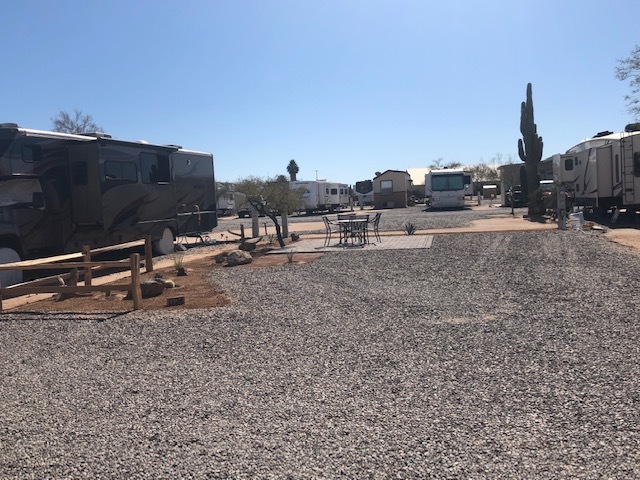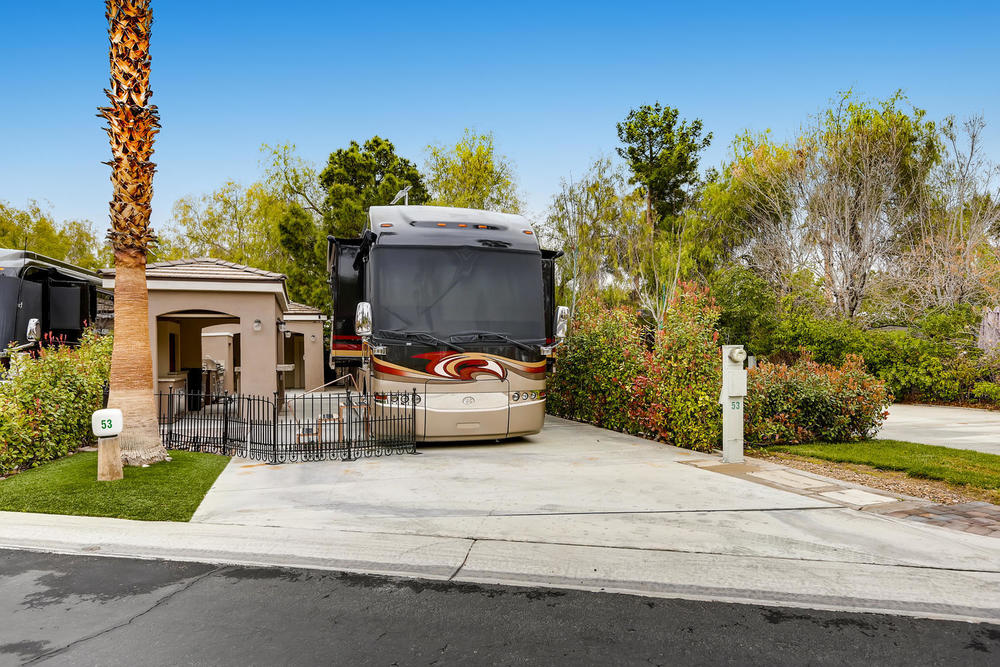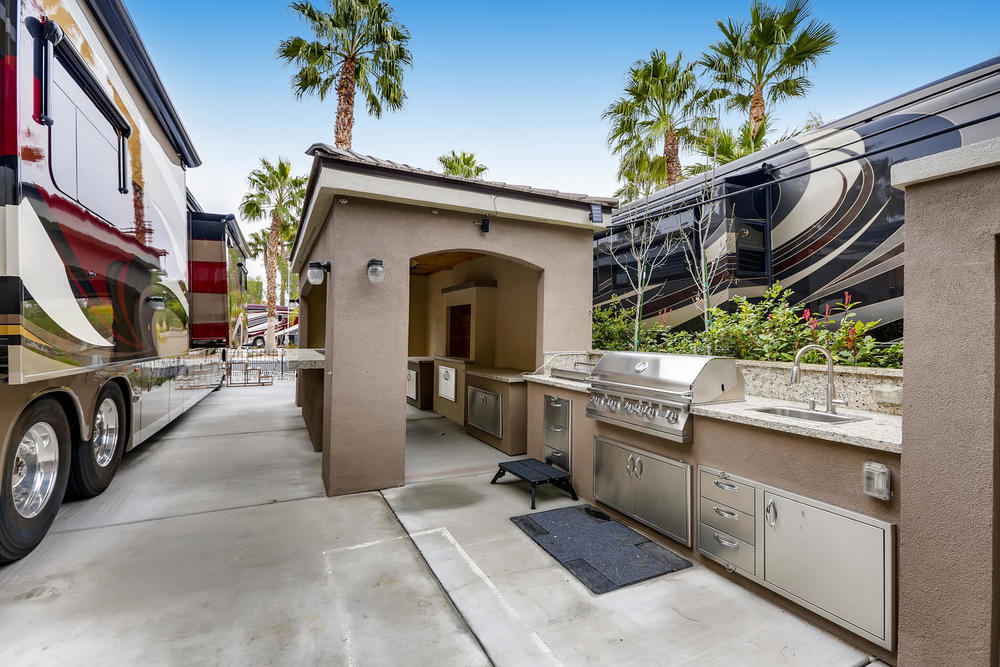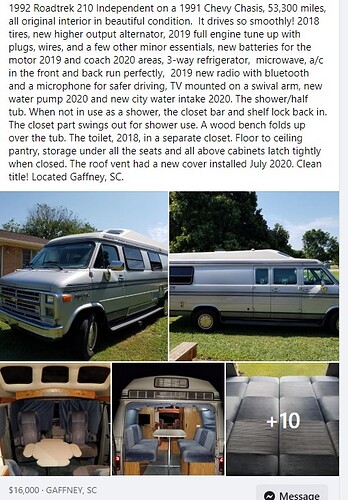I’ll second the advice to avoid vehicles from the rust belt. Giant pain in the ass.
There were two (well, three) people who really started to germinate this idea in my brain.
The first was a dealer on the tournament circuit whose name I don’t know. I like to make small talk with dealers, ask them where they are from, and what they have experienced on the circuit. This dealer said that he had give up his apartment, put him stuff in storage, and was a full-time traveling dealer. If he need to spend an extended period of time at “home”, he would just do a short-time rental.
It made me start to think about playing poker that way. I later found out about some poker pros living the “homeless” lifestyle. Having discovered that I once played against Ari Engel, I dove into finding out more about this person who I had never heard of before. He hasn’t had a full-time place for several years, but does visit his parents on occasion. Another was frequent Thinking Poker podcast guest Carlos Welch, who was living in his van until he decided he needed A/C and upgraded to a Prius. I think he may have picked up a more permanent address during COVID, but I haven’t listed to the podcast where they talk about his most recent status.
With the rise of Andrew Neeme, some other poker players tried to get in on the vlogging craze. One was Andrew “bikeking19” Pieper, who started a twoplustwo thread in which he gave up his job as an avionics technician to grind small stakes hold em and ended up homeless, sleeping in his car, and grinding sub-$100 buy-in tournaments. Along the way, he may have been robbed.
Another was Seth Beaver, who started out with a trailer playing in several places I have played in Florida, working his way across the country before disappearing after less than a year.
Here are their vlogs:
One might think that this would lead me to the idea of turning to vlogging as a way to monetize playing poker on the road. The idea makes me uncomfortable. I don’t think I would be a good on-camera personality. It’s a lot of time editing. (Some of these vloggers seem to spend an hour for every minute of video produced.) I have a very uninteresting playing style. If my hypothetical YouTube channel were to have a thesis, it would be that good poker is usually boring and that it’s okay to be boring. Who wants to see “The Life and Times of Joey Knish”? I don’t think people want to see me being me and I’m reluctant to put myself out there like that, anyways. I don’t think there is an audience for a sardonic take on the poker world reminiscent of Daria Morgendorffer, so I’m not doing it.
I’ll get to the other two people who started me thinking about this idea in a future post.
Yeah, it seems to me there’s a catch-22 where to gain viewers you need to make a bunch of splashy -EV plays, but you can’t really afford to give up that EV until you have enough subscribers to offset it. Plus, AFAIK, TY keeps changing their payment agreements and it’s worse for the content creators after every change.
In addition to the nameless dealer, the two people who got me exploring the idea of playing a poker RV lifestyle were the parents of my sister-in-law, who have taken to living full-time out of a class A RV in their retirement. They were the first time I heard about RV life.
They are definitely not Republicans, but the RV crowd they hang out with tends to be. I remember one time when their son was triggered by the presence of someone wearing a MAGA hat and spent the night, as they say, in his cups fuming about it. When I have been with them, they stay in high-end RV parks, of the sort where the weekly rental of a parking spot can be over $800.
The full-time RVer crowd seems to be polarized. On the one hand, there are the rich retirees who are living the lifestyle to spend their money before they die. On the other hand, you have people who are full-timing to save money. They are more likely to still be working and have found a way to live on the road while doing so. One tends to stay at resorts with full hookups so that they can live with the utilities of a normal house, the other cares a lot of BLM, where it stands for the Bureau of Land Management, a source for free land to camp on without hookups.
My sister-in-law’s parents (is there a less awkward way to say that?) eventually bought an RV lot to park their rig. I had never heard of such a thing and I started looking into them.
You can’t just park an RV in the street and camp there overnight, moving from place to place. And you can’t just buy a piece of land and camp there, especially if you want to be close to cities (and poker rooms). You might be able to get away with it in an unzoned rural area, but a lot of places outlaw camping on your own property.
You also can’t just camp in a driveway. If you have a nice house in a subdivision with an HOA, you might not be able to park your RV in your driveway, period.
Deeded RV lots are a way around that. (There are also co-operative RV parks, where you buy a share that gives you the rights to a lot.)
As far as I can tell, the idea of RVers owning their RV park came from RVers who would spend time in the same parks and decided it would be nice to buy the same campground, improve it, and have a permanent spot to come to. Now, people are developing RV resorts with amenities to lure in the boomer RV crowd.
And this is where we get back to the polarized nature of RVing. These parks are usually designed to keep out the riff-raff. Most are “active adult” communities with a requirement that owners be over 55, a milestone I am still more than a decade away from. They are usually gated communities with homeowner associations that make sure everyone is keeping up appearances. They often require owners to have a class A or fifth wheel less than ten years old because you just don’t want to let in the poors who can’t afford those sorts of things.
Here’s an RV lot in Las Vegas, 5-10 minutes west of the Silverton Casino.
The listed price is $260,000. Of course, there are much cheaper lots with fewer amenities. $25,500 will get you this lot in a 55+ Arizona co-op:

If you are thinking about an RV, you also have to think about where to park it, and I’ve been doing a lot of thinking on that point. I’m curious if the rest of you would consider the same options or come up with something new.
Wait, $25K to park your RV there? If true, that’s insane. You can find places for under $300 a month if you are patient.
But you’ll be at the mercy of landlords who can jack up the price at any time. Some people want to own the land they stay on.
It’s $25K for a share in a co-op, so how those usually work is that you pay monthly or quarterly fees like a HOA and you can sell your share if you no longer want to live there.
Here’s a co-op where it is $10k for a membership, plus about $1k/year in maintenance fees. Over four years, that’s equivalent to a bit under $300/month and that’s not including the money you get back when you sell your share back to the co-op plus additional money you can make renting out your lot.
I have no experience with co-operative housing and it seems like RV co-ops tend to be 55+ communities, but I find the idea appealing. I’d like to know if anyone here has lived in a housing co-op. It also sounds like you can’t finance a co-op share the way that you can a deeded lot, so you need to be able to have the money upfront. As a poker player, that doesn’t bother me. With my dodgy finances, I assume that buying any property (although a co-op share is not considered real property) will be easier if I pay in cash.
I lived in a housing co-ops in college. Not really the same thing.
Check out the app “RV Parky”.
My dad travels about half the year in an RV. Stays in different parks for a couple weeks at a time but will park in a walmart parking lot overnight while traveling to his next destination.
So, if I am not going to live full-time in an RV, that means I need a place to park it when I am not playing poker on the road. Ideally, this would be somewhere close to some poker rooms.
There are three basic areas I have identified that meet my poker-playing needs.
#1 by far is Florida. With a central location, I would have an easy drive to several different parts of the state where I could camp out in the parking lot of a good poker room for 1-3 nights before returning home. As you might guess from COVID-19, people in Florida are not geniuses when it comes to risk assessment and the games are quite good. The combination of better games and the ability to play more hours might let me double my annual winnings.
#2 is Las Vegas. The main attraction would be that I would have a home base to work out of during the WSOP since the need to run AC might make it a bit too difficult to camp out in the Rio parking lot in the middle of summer. I could make it to some of those juicy SoCal games without having to pay to live in California.
#3 is a midwestern area somewhere between Chicago and Cleveland. I’m from the midwest and am culturally midwestern in a lot of ways, so I would be comfortable living there. I wouldn’t make as much, but it would be cheaper to live there. It would be the easiest place to buy a cheap house, but I kind of want to live in a place with less snow. In most places, I would also be limiting myself to one nearby poker room and I like to have options.
I suppose a case could be made that there are locations in the northeast where I would be within reasonable driving distance of several places, but I have not played poker in many of those places. It’s worth a look, though. I’ve heard great things about the poker in Philadelphia and Baltimore/DC, which aren’t too far apart.
Some might also suggest Texas, but I would prefer to have their card rooms on more secure legal footing before I move there.
In theory, I would spend some time traveling to all of these spots and test them out. I’ve already done a little of that. I’ll do more when live poker feels viable again.
But what kind of place can I live in part-time?
I gotta say this sounds like a lot of fun and a cool adventure, but is now the time to be doubling down on live poker? When do you expect to be back at the table?
I don’t know when I will be back, although I suspect I will make an appearance at the tables in 2020.
I’m not trying to have a fun and cool adventure. This is supposed to be a boring grind. And I don’t really have any other options. Live poker is necessary for my ability to make a living and also to maintain my mental health.
This is exactly the sort of vehicle and price range I would be looking at buying. I’m worried that I won’t be good at evaluating the quality of an almost 30-year-old vehicle like this.
In looking for a cheap homebase, one idea I considered was mobile homes.
The preferred industry term these days is “manufactured home”. Part of that is to avoid the stigma attached to the term “mobile home”, but it is also true that mobile homes aren’t very mobile; you generally move them once and leave them there.
A common arrangement is that you own the mobile home but rent the land it sits on. If this sounds problematic, you’re right. It’s not uncommon to hear stories about mobile home parks jacking up lot rents beyond the ability of tenants to pay. In some cases, people buy these parks because of the value of the land and intentionally raise rent so that people are forced to move and the park can be re-developed as something more lucrative. What do you when you can’t afford to live in a house that you own that is in no condition to move and which you couldn’t afford to move if it was movable? Landlordism at its finest.
You might ask about the idea of buying land and plunking down a manufactured home, but zoning laws often don’t allow mobile homes except in mobile home parks, so you would have to live out in unincorporated land to have a shot at it. Then, you have to pay to install utilities. I don’t think I’m ready to live the rural life.
Overall, buying a mobile home doesn’t seem like a great idea. And if I were going to rent one, other rental properties seem better.
Seems like you want to be able to travel for games more than have a home base.
Just because you’re in an unincorporated area hardly means that utilities aren’t available. It doesn’t even mean that it’s rural. But, it’s not even necessarily more expensive to buy an old little house than it is to buy vacant land.
Someone (John Oliver?) did a story about this years ago, and I’d never consider a mobile home for this reason.
A lot of people in mobile homes own the land they are on.
I want to travel for games, but I don’t want to be on the road 52 weeks per year, which means I do need some place to return to every once in a while. And if I am only going to part time in that home base, it makes sense to go with a cheaper option.
The unincorporated areas that I have been looking at are generally rural and you usually do need to pay to install utilities. If not rural, they are unimproved. The main point was that there are additional costs, like installing a septic system, that you might not have with a more urban option.
There are a few options I considered and buying a cheap old house is on the list of ideas I will go over in the future. I’ve rented all of my life, so I do need to think about the in and outs of land ownership.
I just checked that out and it seems to go over most of the points that I did.
I looked it up and it seems like maybe half of manufactured homes are located in mobile home parks. Ultimately, I’m more of a city person and it’s hard to plunk down a mobile home on land that you own if you are in a city.
The only solution to having a place in the city that is not expensive is like having a cheap house in Detroit or whatever cities have areas where houses cost virtually nothing. If you are going to travel, you should get your van/RV and do some travelling and try longer term boondocking, which can be done relatively close to cities in the Southwest. You can travel around and look for a place that you might want to stay put in for a few months at a time or whatever. If you’re going to stay in cities, maybe just consider airbnb or something.
Basically, “I want a nice permanent place in a city that’s really cheap” is a pretty tough nut.


